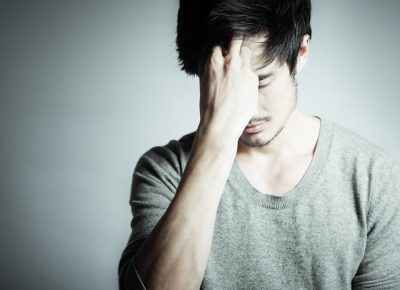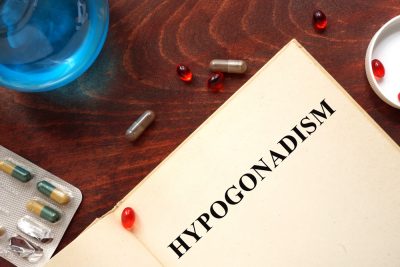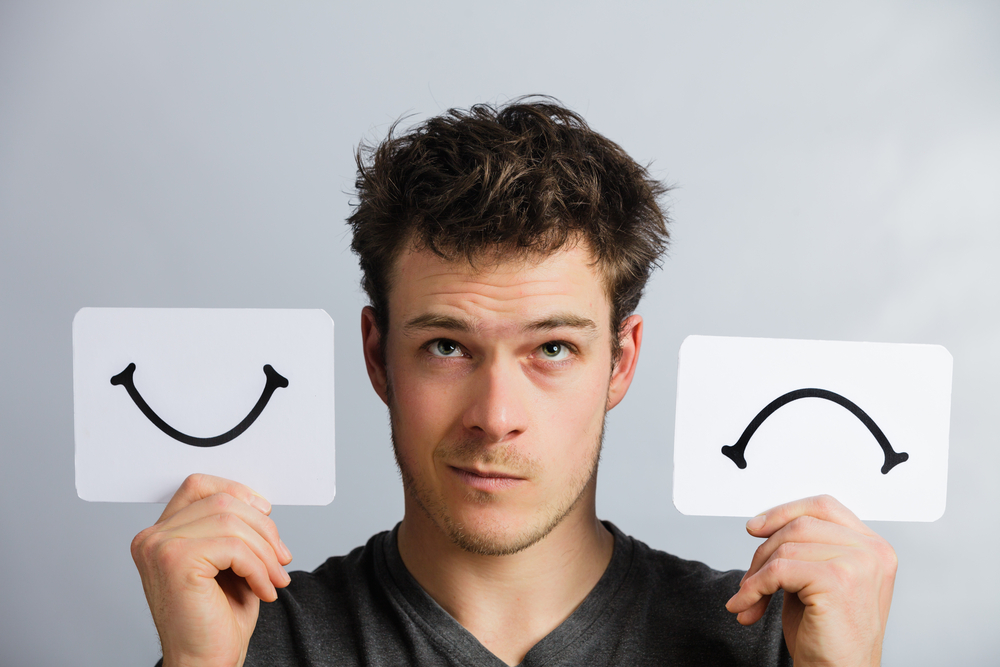Testosterone, also called androgen, is an essential male hormone responsible for bodily functions like Muscle strength, libido, sperm production, and bone density. Testosterone is mostly associated with only men; butt women produce it too but in a lower concentration.
Low testosterone in men can cause several emotional problems, including depression. So, yes, “low testosterone can cause depression.”
What Is Depression?
Depression is often related to mood disorders. It can sometimes be explained as a feeling of sadness or anger that interferes with your daily activities, and it is very common in people. Depression can be more than just a constant state of feeling sad or angry.
People experience/show Depression differently, the reactions they give varies, so sometimes it can be impossible to tell if an individual is depressed. Depression affects various parts of your activities; it can result in low productivity at your workplace and sometimes even lead to selective memory loss.
Feeling sad over a particular occurrence may not precisely be termed as depression, as it can be seen as a regular occurrence. Still, when the feeling of hopelessness and despair happens on a daily and regular basis, maybe you are dealing with depression.
Early treatment of depression usually results in improvements within a few weeks after treatment.
Depression comes in many forms and levels; it can either be mild, moderate, or even major. Knowing what type of depression you have can be complicated, but understanding the differences would help you treat it better.
Mild Depression
This is the most common type of depression. It is more than just feeling blue; mild depression can also interfere with your daily activities, stealing your joy and happiness away. It may cause anger, hopelessness or lack of motivation
Moderate Depression
The significant difference between mild and moderate is that it is severe enough to affect your life at home and work. However, it can be easily diagnosed because its symptoms are more pronounced and evident.
Moderate depression can sometimes cause reduced productivity, excessive worrying, and the feeling of self-worthlessness.
Major Depression
 Major Depression is classified as depression severe enough to be noticed by your loved ones. Major depression episodes can go on for as long as a year, and it can be recurrent for some individuals.
Major Depression is classified as depression severe enough to be noticed by your loved ones. Major depression episodes can go on for as long as a year, and it can be recurrent for some individuals.
Major Depression requires immediate medical care and therapy as it brings about suicidal thoughts and delusions.
Depression comes with a variety of symptoms; some can affect your body and mood, while others can be fluctuational. The symptoms of depression can vary between individual and gender.
Common symptoms include:
Anger/Irritability
Feeling agitated and sometimes even violent is a sign of depression; however, it has to be a constant feeling to term it a case of “possible depression.” You get to have a zero-tolerance level, everyone and everything gets on your nerves. When these feelings become overwhelming and continuous, just maybe you have depression.
Reckless Behavior
Depression makes you want to try out dangerous activities without caring about the consequences of your actions. Uncontrollable drug abuse, gambling, and fighting are all symptoms of depression.
Self-loathing
Depression is lurking around the corner when you start despising yourself over things you may not even have control over. The feeling of worthlessness and guilt becomes unbearable, and you end up driving yourself into a state of constant self-accusation.
Loss of interest in favorite activities
When depressed, you tend to pull away from people or engage in activities that you usually find enjoyable. You have no care in the world about anything; no social activity or hobby piques your interest. The urge to have sex or experience pleasure rapidly fades away.
The link between Low Testosterone and Depression
Depression, anxiety, and moods swings are prevalent in men who have low testosterone levels. Inasmuch as researchers haven’t been able to find a strong correlation between the two, it is a piece of accepted knowledge. Testosterone therapy can significantly cause a shift in the mood of men with low testosterone; it is known to cause a boost in feelings, especially in older adults.
Do I have Low Testosterone Level or It’s Just depression?
Getting an accurate diagnosis of this can be quite tricky because depression and low testosterone share some symptoms. To further complicate it, depression and low testosterone levels are both signs of aging, hence the difficulty in making a diagnosis.
Some of the shared symptoms of depression and low testosterone level include:
- Anxiety
- Sadness
- Irritability
- Frequent memory loss
- Insomnia
- Low libido
One way to differentiate depression from low testosterone level is their physical symptoms because it tends to be different. Men who have depression and average testosterone levels do not experience breast swelling, and breast swelling is associated with low testosterone levels. Depression also doesn’t come with decreased muscle mass or a decline in strength.
The physical symptoms of depression are, most times, just back pain and headaches.
To be sure if you have a low testosterone level or you just have a case of depression, a physical exam and blood test can help solve your query better.
Why you have Low Testosterone
Several factors can contribute to you having a low testosterone level. Low testosterone, also called “hypogonadism” is a result of the testicles’ malfunction – the organ responsible for testosterone production. Having an injury to your testicles might lead to primary hypogonadism, and these injuries can be caused by:
- Mumps
- A high concentration of iron in the body
- Cancer Treatments
Primary Hypogonadism
Primary hypogonadism, also called primary testicular failure, occurs when there is an issue in the testicles. It is a condition where there is a limited amount of sex hormones in the body as a result of a problem in the gonads. The gonads receive the message from your brain to stimulate the production of hormones, but it is unable to produce it. Primary hypogonadism also occurs when the serum testosterone concentration and the sperm count falls below the normal level, and there is an increase in the luteinizing hormone and follicle-stimulation hormone.
Causes of Primary Hypogonadism
Undescended Testicles
During fetal development, the testicles develop inside the abdomen, and it moves down to the scrotum. In the case of primary hypogonadism, only one testicle moves down to its permanent place – the scrotum – and on some rare occasions, both testicles don’t descend at all.
Usually, this condition corrects itself without any medical treatment during the first few years of life. However, if it does happen during early childhood, it may result in a decrease in testosterone production and malfunctioning of the testicles.
Mumps Orchitis
Mumps infection can be quite harmful to the testicles. A mump infection associated with the testicles cam damage the testicles permanently, thereby affecting the lowering the production rate of testosterone and decreasing the functionality of the testicles in the body.\
Cancer Treatment
This is a prevalent cause of primary hypogonadism; chemotherapy affects sperm and testosterone production. The effects are temporary if necessary treatments are carried out, but permanent infertility cannot be avoided in some cases. While some men may regain their fertility a few months after treatments, the preservation of sperm is an option to consider before commencing cancer treatment.
Testicle Injury
Since the testicle is outside the abdomen, it is prone to physical injury, because it has limited protection. An injury that would result in the damage of an already normal developed testicle can cause hypogonadism. Still, damage to just one testicle may not result in total impairment of testosterone production.
Hemochromatosis
This condition is characterized by the presence of too much iron in the blood. It can lead to the pituitary gland and testicular failure, and once this occurs, it directly interferes with testosterone production, causing a decline in testosterone level.
Secondary/Central Hypogonadism
 Secondary hypogonadism is a condition where the testicles don’t function properly as a result of a problem in the pituitary gland or hypothalamus.
Secondary hypogonadism is a condition where the testicles don’t function properly as a result of a problem in the pituitary gland or hypothalamus.
This occurs when the brain fails to send a signal to the testicles. Men with secondary hypogonadism sometime ejaculate semen without sperms. And this condition is mostly discovered when a young boy fails to experience or go through puberty like his peers.
Causes of Secondary Hypogonadism
Inflammatory Diseases
Inflammatory diseases such as histiocytosis and tuberculosis associated with the hypothalamus and pituitary gland can cause a decrease in the production of testosterone. Treatments of these diseases may help boost testosterone levels.
Pituitary Disorder
An abnormality in the pituitary gland can cause impairment in the release of hormones that flow to the testicles, leading to a decrease in testosterone production. Brain tumors located close to the pituitary gland can lead to a deficiency in testosterone and other hormones.
Radiation therapy for brain tumors complicates the process because radiation therapy itself affects the pituitary gland and testosterone production.
Aging
As you progress in age, it becomes a regular occurrence for there to be a decline in the production of testosterone in the body, but the rate at which testosterone production drops varies in individuals.
HIV/AIDS
HIV/AIDS is a virus that affects the hypothalamus, pituitary gland, and the testes. Any impairment to either one would result in a low level of testosterone.
Obesity
Being over-weight is a very known factor that majorly affects the level of testosterone. Obesity causes a decrease in the level of sex hormone-binding globulin (SHBG), a protein responsible for transporting testosterone in the blood.
Medications
Certain drugs, such as opiate pain medication, can drastically lower the testosterone level in the body.








COMMENTS